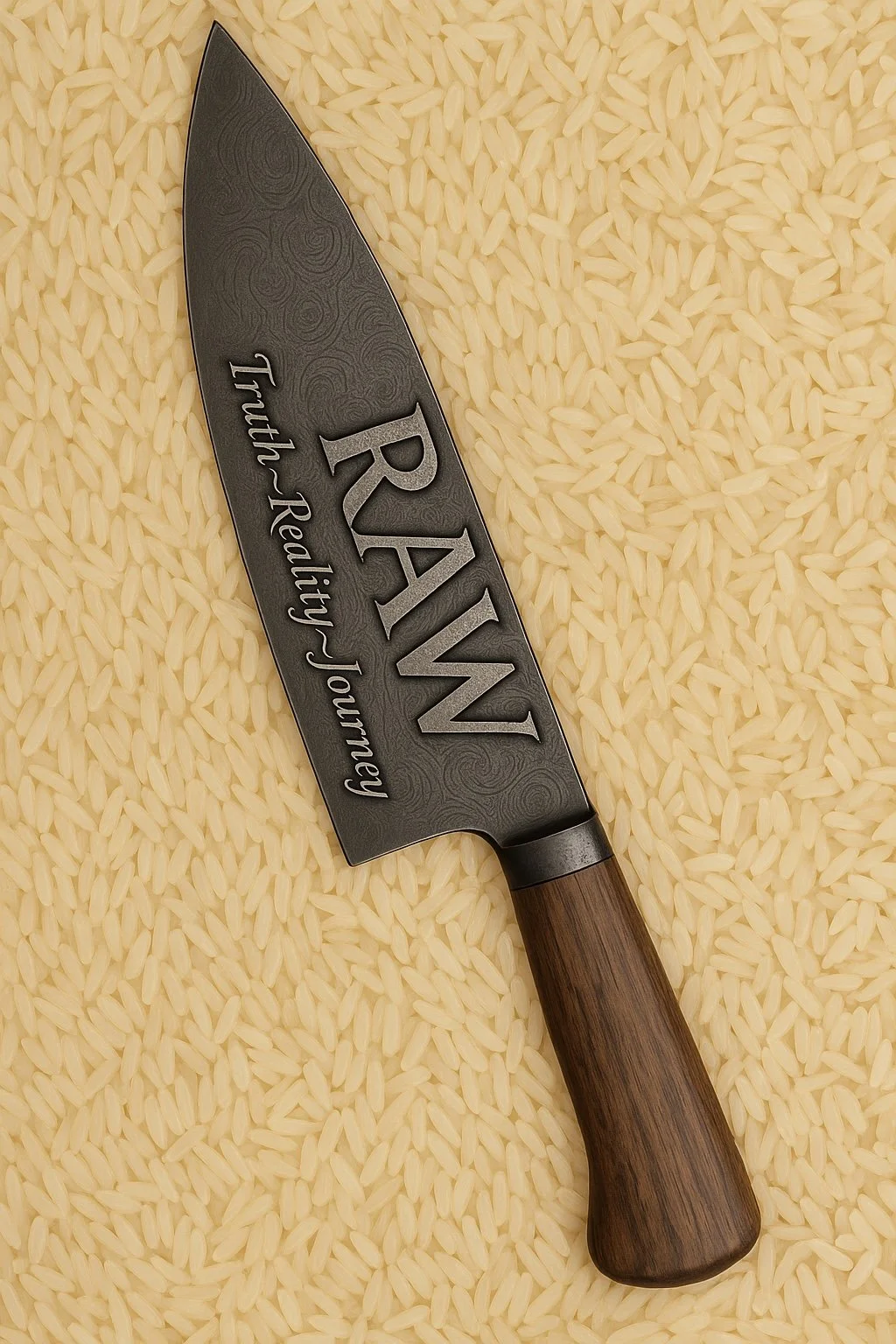Humility Wears The Apron
One of my favorite questions to ask my crew is:
“Are you good?”
Now, as the chef — the person in charge — I usually already know the answer.
If I see someone in the weeds or clearly overwhelmed and they hit me with, “Yeah, I’m okay,”
I’ll ask again:
“Are you sure?”
That second ask usually opens the door:
“Actually… can you grab those potatoes out of the oven?”
No problem.
Because here’s the thing — humility isn’t weakness.
It’s being honest about your limits.
Sometimes, all it takes is that one extra hand to push the food out the door.
And that’s okay.
Of course, you shouldn’t let people carry you or do your job for you. But as you gain experience, you’ll learn to recognize the difference between managing your station and getting buried by it.
Leave the Ego at the Door — or the Kitchen Will Do It for You
I’ve learned that if you try to check your humility at the door, the kitchen will gladly bring it back in and hand it to you like,
“Hey — you dropped this.”
You’re going to want to prove yourself.
You’ll want to show that you can handle multiple tasks and carry the weight.
That’s natural — and even admirable.
But don’t burn yourself out trying to be a hero.
There’s a long road ahead. Pace yourself.
Use your time in the kitchen wisely. Be effective. Focus on:
· Good technique
· Consistent execution
· Quality work
I’ve seen chefs try to do ten things at once.
They may finish one, but then end up needing help finishing the other nine — leaving a mess behind for the team to clean up.
You’ve got two hands and two legs. Be smart.
Trying to do everything — and failing at most of it — isn’t impressive. It’s a liability. And it puts pressure on your crew.
That’s not leadership. That’s ego.
And that makes you someone people don’t want to work with.
Ask for Help — And Mean It
The kitchen is about teamwork.
If someone isn’t pulling their weight, it’s on leadership to handle that.
And if they don’t? Then you respectfully hold that person accountable — the same way you’d expect them to hold you accountable.
We’re in this together.
I tell my crew all the time:
“Ask me for help if you need it. I won’t be mad. I’ll respect you more for it.”
Not because I doubt their ability — but because I know sometimes they just need an extra set of hands.
Maybe the dish got more complicated.
Maybe a substitution got called mid-service.
Maybe a delivery was shorted and now we’re making it work on the fly.
There’s always a reason behind helping.
And there’s never shame in asking.
It’s not about pride. It’s about keeping the train moving.
Humility Also Means: “Chef, Can You Taste This?”
It’s also okay to say:
“I don’t know how to do that — can you show me?”
“Chef, taste this. Let me know if it needs anything.”
Even if you’re proud of the sauce you just made — ask.
That small gesture goes a long way.
It shows you’re:
· Willing to learn
· Open to critique
· Focused on the standard, not just your ego
That kind of attitude keeps the kitchen aligned.
It keeps everyone moving in the same direction.
If You’ve Got Time to Lean…
One of my biggest pet peeves?
Seeing a young cook standing at their station, arms folded, doing nothing.
Just because your work is done doesn’t mean the kitchen is done.
My chefs used to say:
“If you’ve got time to lean, you’ve got time to clean.”
But it’s bigger than that.
The cooks that impress me most are the ones who finish their work, then ask:
“Hey Chef, I’m good to go for service — anyone I can help?”
“Yeah, jump on salad. They could use a hand chopping lettuce.”
That’s how you build respect.
On the flip side, the worst response I’ve heard:
“I don’t get paid to do that.”
If that’s your attitude? I don’t want you in my kitchen. And I’m not the only chef who feels that way.
Because one day, you’ll need help.
And if your teammates respond with the same energy — arms folded, scrolling their phones — how would that feel?
This Isn’t TV. This Is Real Life.
This isn’t Chopped.
This isn’t some Food Network showdown where you’re competing for camera time.
This is real life.
We’re people. Working hard. Trying to serve food and do it well.
It’s not about ego. It’s not about accolades.
It’s about integrity.
It’s about respecting the people beside you.
If you just want a paycheck, that’s fine.
There’s no shame in that.
But if you’ve made it this far in this book — I’m guessing you want more than that.
Final Word
Karma lives in the kitchen. I’ve seen it.
When you do good work, when you help others — it always comes back.
That’s what makes this industry thrive.
Humility is one of your greatest strengths.
Never forget that.
